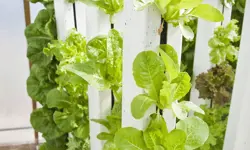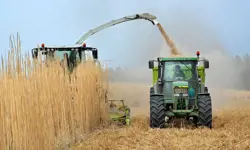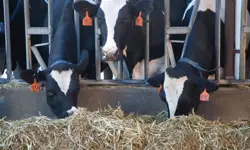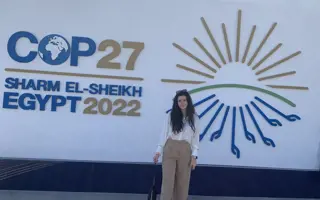
Q&A: Mamta Singhal
Quick-fire facts
Age:
Late 30s
Qualifications:
BEng, MSc, MBA, CEng, MIET, MWES.
Biggest engineering inspiration:
My dad.
Most-used technology:
My smartphone.
Three words that describe you:
Collaborative, entrepreneurial and STEM-lover.
What does a typical day at work involve for you?
Well, no day is ever the same. One day it will be dealing with calls and emails with perhaps an international video conference. Other times I may need to review prototypes, make a factory visit, or do project planning; it varies.
I work on manufacturing designs focusing on engineering quality, compliance, sustainability, packaging and streamlining supply chains. I use technical applications to make consumer items, from working out the size of monopoly pieces to improving the flow-wrapping for chocolate bars.
One of my favourite jobs was working as a Project Quality Engineer at Mattel. This involved helping ensure that the company manufactured goods that were safe and complied with regulations in the toy sector.
I spent a lot of time measuring, checking and rethinking engineered pieces so that the amount of materials could be reduced and the items could be made safely. I sometimes helped make a toy more enjoyable and playful to use.
Hasbro was where I started my career in toys and I modelled game pieces using computer-aided-design and then produced 3D scaled mock ups of them. I would then ‘debug’ these first prototypes, ensuring that errors were spotted before going into full production. It felt a little like looking into the future, working on games and toys that would one day be wrapped up and played with.
Why did you first become interested in engineering?
When I was seven years old, I often tested how things worked. So, I would take apart watches, pens, phones and hairdryers to see what was happening inside! My father is a physicist and he encouraged me and my sister to have open minds in regards to learning and following our passions.
By the age of 10, I found myself wanting to do maths for fun and gravitated towards logic puzzles and STEM buildings blocks. When I was 13, I remember my dad taking me to the James Watt School of Engineering at the University of Glasgow and I was amazed by the place. My father has been a STEM spokesperson in Scotland for 50 years and I remember watching him speak publicly and finding it fascinating.
How did you get to where you are now?
I studied an affiliated degree course in product design engineering at the James Watt School of Engineering at the University of Glasgow and the Glasgow School of Art. Following that, in 2002, I took a master’s at Strathclyde University’s Design, Manufacturing and Engineering Management department. I then worked around the world for four years as a design engineer for Hasbro developing various engineering skills such as prototyping and tooling processes.
I returned to Scotland to study for an MBA at Strathclyde Business School. The two years spent there helped me learn about the areas of new product development and supply chains. I then worked in the food industry, first with Mars before joining Coca-Cola European Partners as a commercialisation manager.
What have been your biggest achievements to date?
I was pleased to gain my MBA with over 80% in all subject areas studied and then, in that same year, 2007, I won the Young Women Award from the Women’s Engineering Society. I recently gained my CEng accreditation and so am now a chartered engineer. Each of these have been meaningful for different reasons but together they have helped me establish myself in the world of engineering, business and society.
I have continued to work with the Institution of Engineering and Technology (IET) and in October 2019 I became a member of the IET Council and am very excited about what opportunities that will bring.

Mamta Singhal meeting students who won the chance to meet engineering role models at the House of Commons in 2018 by entering a competition organised by LEGO Education and the IET © IET
What is your favourite thing about being an engineer?
I love looking at materials and objects and working out how they are made and constructed.
The good thing about being an engineer is that I get to meet a range of people, all ages and academic backgrounds with differing views on subjects, which in turn makes for a collaborative and dynamic spirit at work.
What would be your advice to young people looking to pursue a career in engineering?
A degree in engineering opens doors. Our global future requires us to be sustainable, to tackle climate issues, to build smart buildings, to develop new packaging, all of which requires smart engineers. For me, studying engineering was the best thing I ever did.
What’s next for you?
I am aiming for my Fellowship with the IET, a more senior position in industry and an honorary professorship/lectureship. Inspiring future engineers is a definite target.
***
This article has been adapted from "Q&A: Mamta Singhal", which originally appeared in the print edition of Ingenia 81 (December 2019).
Keep up-to-date with Ingenia for free
SubscribeRelated content
Food & agriculture

Precision farming
Technologies such as global positioning systems and guided vehicles are being developed to create an era of precision farming. Professor Richard Godwin FREng explains how these initiatives can combine accuracy and control of field operations leading to increased efficiency and yields.

Farming straight up
Hydroponics, growing plants without soil in nutrient-enriched water, is a technique that has been used in some form for centuries. As the global population grows and food security is threatened, its faster growth and larger yields have become increasingly important.

What role for biofuels in low-carbon UK transport?
Biofuels have a role to play in meeting the UK’s climate change commitments. Sustainable Chemical Engineering Professor Adisa Azapagic FREng sets out why biofuels made from wastes and by-products in different sectors are particularly important to these efforts.

The automation of dairy farms
Robotic milking is not a new innovation, but the systems are increasingly being adopted by UK dairy farms. Science writer and broadcaster Geoff Watts learned from John Baines, Technical Director at Fullwood, how these systems are being engineered to do more than just milk cows.
Other content from Ingenia
Quick read

- Environment & sustainability
- Opinion
A young engineer’s perspective on the good, the bad and the ugly of COP27

- Environment & sustainability
- Issue 95
How do we pay for net zero technologies?
Quick read

- Transport
- Mechanical
- How I got here
Electrifying trains and STEMAZING outreach

- Civil & structural
- Environment & sustainability
- Issue 95